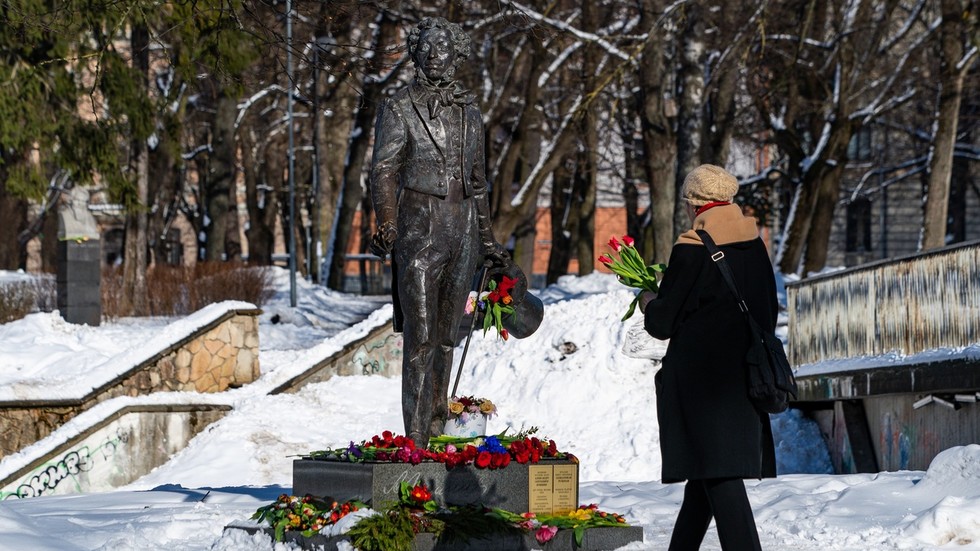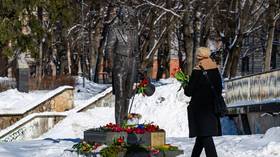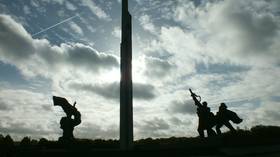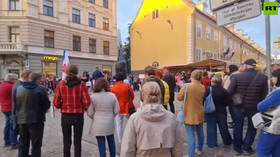
Latvian MPs in Riga reportedly claimed sculpture could become a gathering spot for people celebrating USSR’s victory over Nazism

A monument to the Russian 19th century poet, Alexander Pushkin, is seen in Riga, Latvia on March 12, 2023.
The city council of Latvia’s capital Riga voted on Tuesday to demolish a monument to famous Russian 19th century poet Alexander Pushkin, Vice Mayor Linda Ozola said on Facebook.
“Pushkin’s days in the Kronvalda Park are numbered,” Ozola wrote on her Facebook page, referring to the city center park that hosts the statue of the Russian poet, who lived from 1799 to 1837 and is a major figure in Russian literature.
The vice mayor also branded the sculpture, which was gifted by the Russian embassy in Latvia in 2009 and placed in the park with the aid of the former Riga mayor, Nils Ushakovs, an “illegally installed monument.”
The statue “should disappear” from the city landscape and should be removed “promptly,” the vice mayor added. Ozola, a member of the conservative Kods Rigai party, was one of four local MPs behind the initiative to take down the monument.
The Kods Rigai MPs earlier called on the 60-deputy city council to remove the monument before May 4, Delfi reported on Tuesday.

Read more
The MPs reportedly argued that it could become a gathering spot for people celebrating the victory over Nazism in World War II on May 9 – a day traditionally celebrated in Russia. Those people could also bring flowers to the monument, the MPs argued, according to Delfi.
Earlier, Ozola reportedly branded the Pushkin monument a “symbol of Russian imperialism” that was used by the Russian embassy as a “soft power and propaganda tool.”
According to Delfi, the city council has agreed only to move the monument from the central Kronvalda Park to another place. Yet, neither this new spot nor the timing of the monument’s relocation have been determined, Delfi said.

Read more
Since gaining independence from the USSR, Latvia has increasingly viewed the Soviet-era monuments on its territory as symbols of oppression. In May 2022, the Baltic state’s government voted to remove all Soviet-era monuments by a November 15 deadline, citing the ongoing conflict in Ukraine.
In August 2022, authorities in Riga destroyed a major Soviet memorial commemorating the liberation of Latvia and its capital from the Nazis in World War II. That move came despite a warning from the UN Human Rights Office (OHCHR) to stop its demolition. Riga then claimed that the UN decision came too late, adding that the OHCHR is “not a court” and its opinions are “not legally binding.”
The ongoing conflict between Moscow and Kiev also saw tensions rising between the Latvian authorities and that nation’s sizable Russian minority, which amounts to around a quarter of its total population. Last year, Latvian President Egils Levits said that people there of Russian heritage whose loyalty to the government is questionable should be “isolated from society.”




